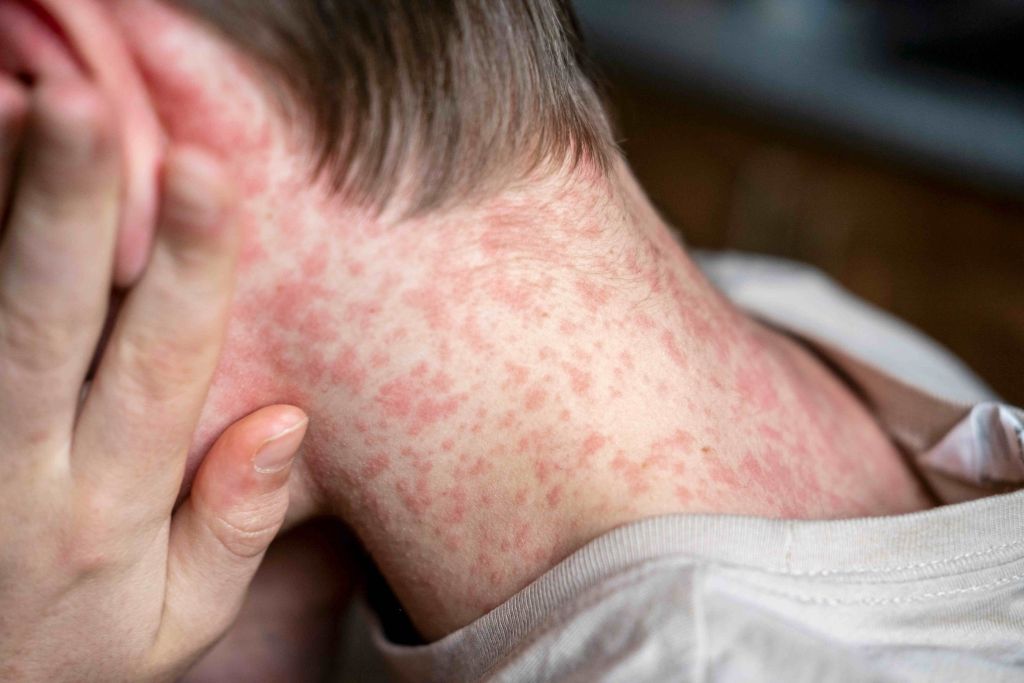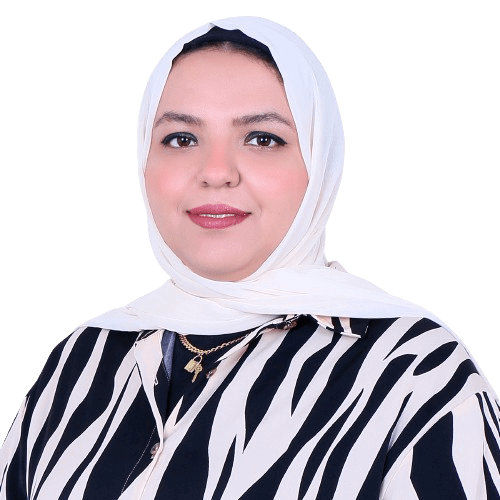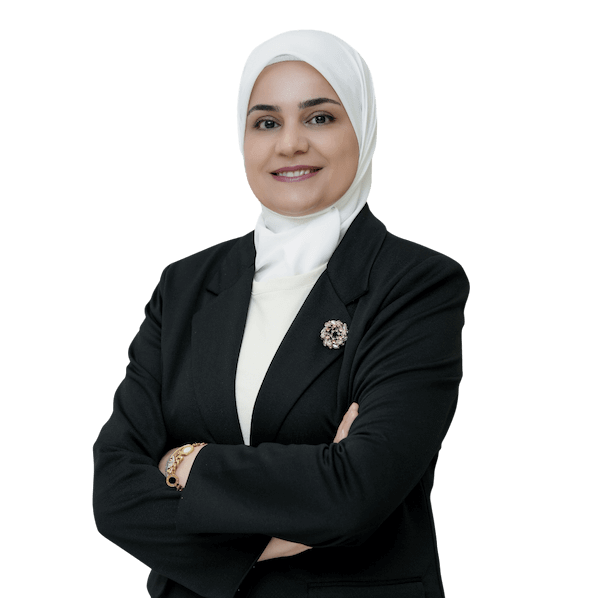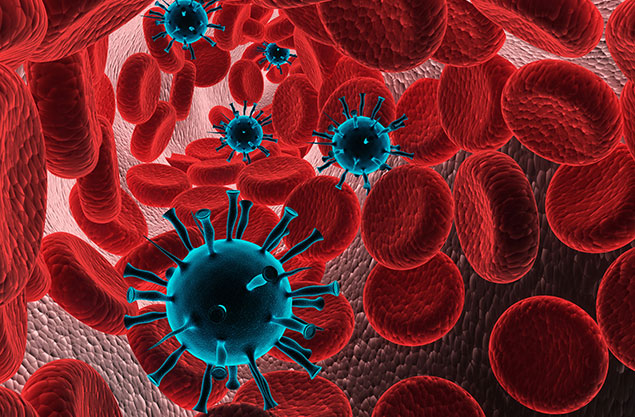Written By: Dr. Arianna Huerta Martinez
Dr. Arianna Huerta Martinez is a Specialist in the Department of Paediatrics. She obtained her MBBS from Anahuac University in Mexico City. She subsequently completed a Master’s Degree in Paediatrics and another Master’s Degree in Paediatrics Infectious Diseases, both from the National Institute of Paediatrics in Mexico City.
Updated On:January 29, 2025
Read more.

What is Measles?
Measles is a highly contagious virus-caused airborne disease. Red eyes, a cough, a fever, and a rash are all symptoms of measles. Serious side effects including encephalitis, which can itself result in hearing loss, are possible. By getting vaccinated, you can avoid contracting the measles.
Causes of Measles
The morbillivirus, an exceedingly contagious virus, is what causes measles. In fact, nine of ten unvaccinated individuals in a room with a measles carrier would contract the disease. Measles is transmitted by:
- Droplets of contaminated fluid that are released into the air when you cough, sneeze, or speak
- Kissing a person who has measles
- Sharing beverages or meals with a measles patient
- Hugging or shaking hands with a person who has the measles
- From expectant mothers to their unborn children, either during labor or delivery or when nursing
Even after the measles patient has left the area, the airborne respiratory droplets may still be there.
Symptoms of Measles
After being exposed to measles, symptoms might appear anywhere between six and twenty one days later. The most typical signs and symptoms of measles include the following:
- High fever
- Tiredness
- A wheezing cough
- Bloodshot or red eyes
- Runny nose
- Throat ache
- White specks in the mouth
- Muscle ache
- Eye sensitivity to light
- A red rash that appears on the head before moving down the body
The rash initially appears as flat red dots on the face before spreading across the body. The red rash may then be followed by tiny elevated white patches. As the rash spreads down the body, the dots may converge.
When to see a doctor for Measles?
If you believe you or your child have come into touch with someone who has the measles, call your healthcare practitioner immediately. Also, call your doctor if the measles in you or your child appears to be getting worse rather than better.
Measles Risk Factors
Measles can infect anyone who has not had a vaccination. Prior to the creation of the measles vaccination, practically everyone contracted the disease. You are more likely to be immune to the measles virus if you have ever had the disease or received the vaccine.
Measles Complications
Measles has a lot of side effects, some of which are very serious. Most frequently, complications occur in:
- children who are under the age of five,
- pregnant women,
- adults of 20 years of age or older,
- and those whose immune systems are compromised.
Measles complications include the following:
- Diarrhea
- Infected ears
- Pneumonia
- Encephalitis
Measles Diagnosis
By examining you, your doctor will probably be able to determine whether you have the measles. Nonetheless, they could request lab examinations to look for the virus in samples of
- blood,
- the mucus in your throat and nose,
- and your urine.
Measles Treatment
Measles has no known treatment. The virus must complete its normal course, which typically takes between 10 and 14 days. You can take steps that might improve your general well-being, such as:
- taking ibuprofen or acetaminophen for fever, aches, or pains
- Getting a lot of sleep
- Consuming enough liquids
- Using salt water to gargle
- Staying away from intense light for eye sensitivity
Measles Prevention
Vaccination is the most effective method of preventing measles. The measles, mumps, rubella (MMR) vaccine and the measles, mumps, rubella, varicella (MMRV) vaccine are the two types of immunizations that offer protection against the disease.
-
MMR Vaccination
The MMR vaccine is frequently administered to children in two injections. The first shot is administered between the ages of 12 and 15 months, while the second is given between the ages of 4 and 5. Measles can still be avoided in children who haven't been inoculated by getting the vaccination within three days after exposure to the virus.
Consult your healthcare practitioner about receiving the vaccine if you're an adult who isn't sure if you've received it, particularly if you intend to travel abroad.
-
MMRV Vaccination
Only children between the ages of 12 months and 12 years can receive this vaccine. Between the ages of 12 and 15 months, your child needs one vaccination. The second shot should be given to your child between the ages of 4 and 6. The second shot, though, can be administered three months following the first. The ideal timing for your child should be discussed with the healthcare professional.
A measles vaccine shouldn't be given to pregnant people. You shouldn't get one if you have an immune system disorder or an allergy to another vaccine. It's crucial to talk about this with your healthcare practitioner and to supply them with complete information regarding your medical background.
References
Bester, J. C. (2016). Measles and measles vaccination: a review. JAMA Pediatrics, 170(12), 1209-1215.
de Vries, R. D., Mesman, A. W., Geijtenbeek, T. B., Duprex, W. P., & de Swart, R. L. (2012). The pathogenesis of measles. Current Opinion in Virology, 2(3), 248-255.
Perry, R. T., & Halsey, N. A. (2004). The clinical significance of measles: a review. The Journal of infectious diseases, 189(Supplement_1), S4-S16.
Semba, R. D., & Bloem, M. W. (2004). Measles blindness. Survey of ophthalmology, 49(2), 243-255.
Meet our doctors from the Internal Medicine department
|
||||||||
|
||||||||
|
||||||||
|
||||||||
|
||||||||
|
||||||||
|
||||||||
|
||||||||
|
||||||||
|
||||||||
|
||||||||
|
||||||||
|
||||||||
|
||||||||
|
||||||||
|
||||||||
|
||||||||
|
||||||||
|
||||||||
|
||||||||
|
||||||||
|
||||||||
|
||||||||
|
||||||||
|
||||||||
|
||||||||
|
||||||||
|
||||||||
|
||||||||
|
||||||||
|
||||||||
|
||||||||
|
||||||||
|
||||||||
|
||||||||
|
||||||||
|
||||||||
|
||||||||
|
||||||||
|
||||||||
|
||||||||
|
||||||||
|
||||||||
|
||||||||
|
||||||||
|
||||||||
|
||||||||
|
||||||||
|
||||||||
|
||||||||
|
||||||||
|
||||||||
|
||||||||
|
||||||||
|
||||||||
|
||||||||
Similar Posts
teleMEDCARE App
Download teleMEDCARE app from Google Play or App Store to connect immediately to Medcare doctors at a click of a button and without an appointment.

Home Services
We offer our patients a broad range of home health care services in the comfort of their own homes. Book an appointment for lab tests, vaccinations, nurses and physiotherapists.

Chronic Care
Know more about our Chronic Care Management Programme in partnership with Damana Saicohealth.

teleMEDCARE App mobile
Download teleMEDCARE app from Google Play or App Store to connect immediately to Medcare doctors at a click of a button and without an appointment.

Home Services
We offer our patients a broad range of home health care services in the comfort of their own homes. Book an appointment for lab tests, vaccinations, nurses and physiotherapists.

Spotii
We have partnered with Spotii to offer a more flexible way to pay - Pay over time for your purchase. No interest, no cost & no catch.






























































